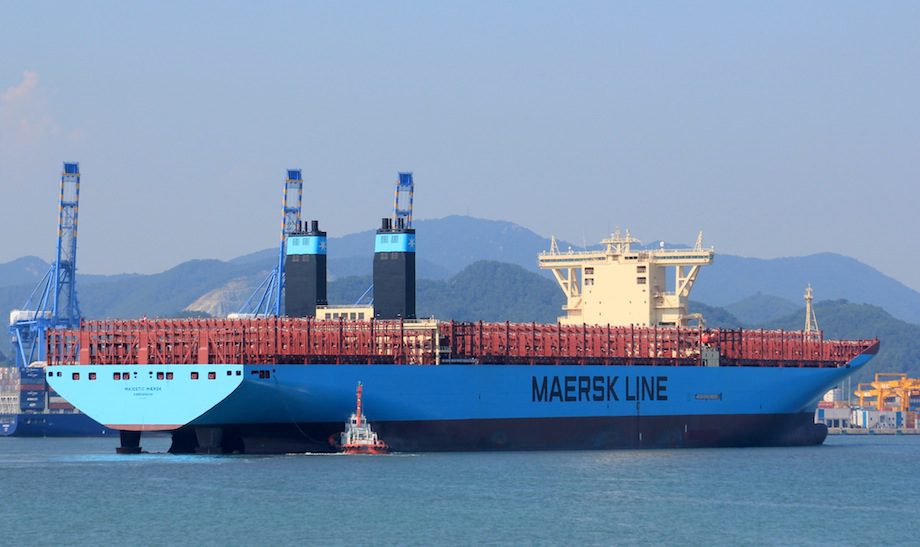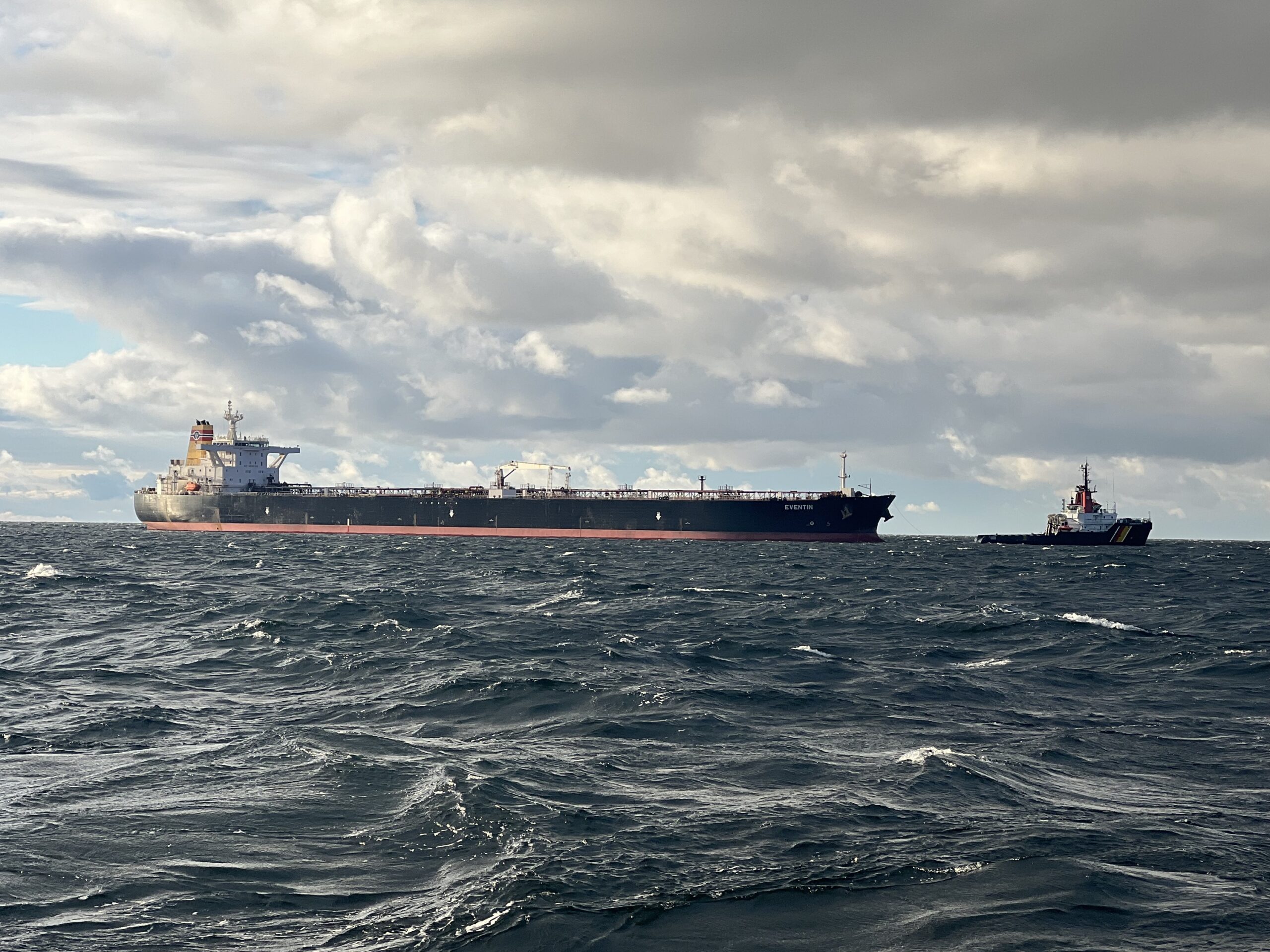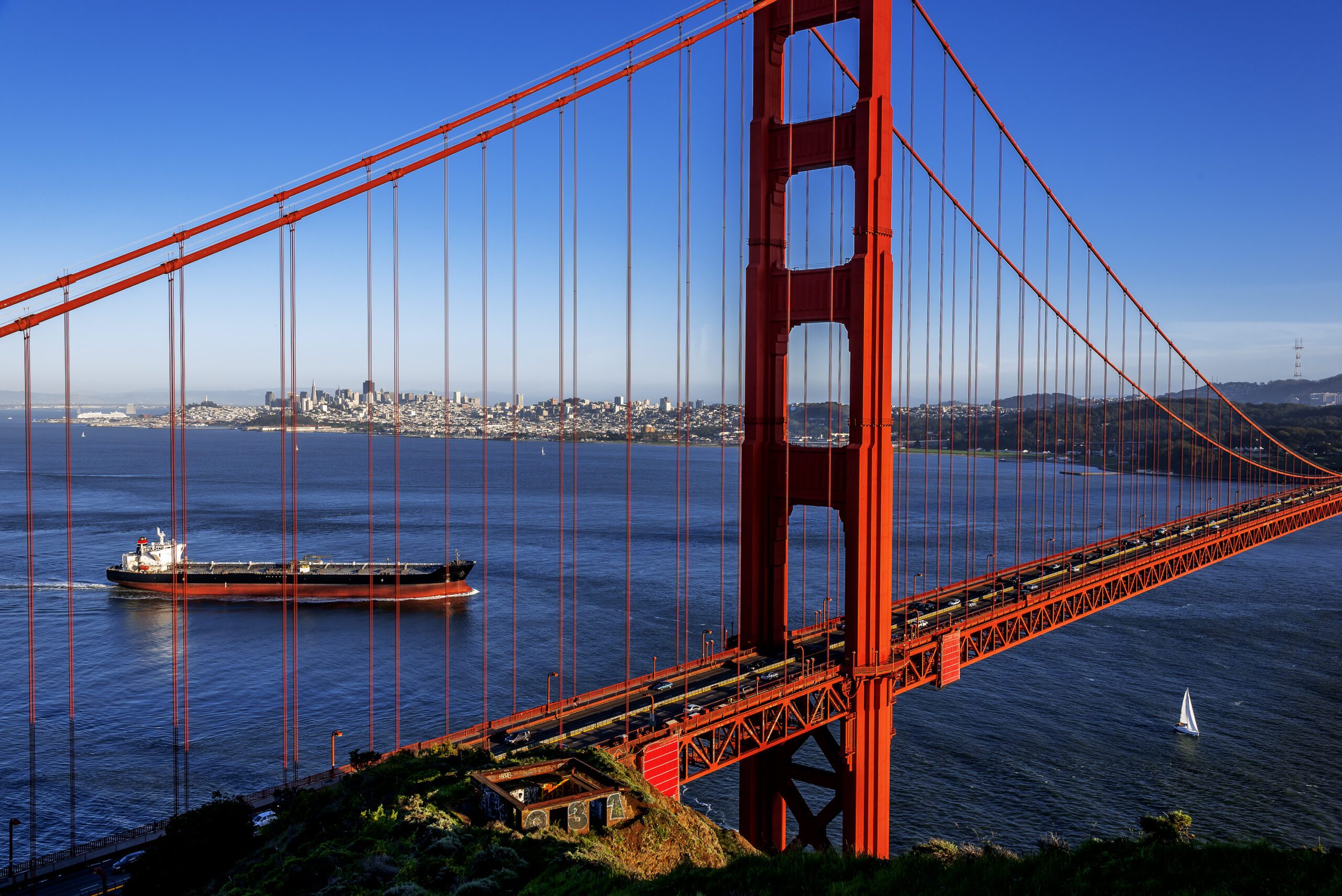MV Majestic Maersk, Maersk Line’s second Triple-E, during her maiden port call to Busan, South Korea in August 2013. Photo: lappino
The International Chamber of Shipping is responding to recent claims by the European environmental lobby group Transport & Environment (T&E) that new ships built today are less CO2 efficient than those built over 20 years ago.
The ICS has dismissed the group’s claims, which are based on a study by CE Delft, as “fanciful”.
T&E argues that the study shows that the efficiency of new ships built in 2013 actually deteriorated since 1990 by 10% on average.
The study, titled Historical Trends in Ship Design Efficiency, analyzed the development of the design efficiency of ships – measured by efficiency indicator values (EIVs) – built over the last 50 years. The EIV is a simplified form of EEDI, or Energy Efficiency Design Index, which was entered into force in January 2013 as part of the IMO mandatory package of CO2 reduction measures (amendments to MARPOL Annex VI).
“T&E bases its claims on a report it has commissioned from the respected consultancy CE Delft, but it has used the findings very selectively. Moreover, the actual data from which the report’s analysis is derived finishes before the worldwide implementation of the Energy Efficiency Design Index (EEDI),” the ICS said in its response.
The statement continued:
“The T&E statement appears to confuse overall design efficiency with an approximate ‘estimate of fuel efficiency’ based on generic data. Modern ships are designed for optimal efficiency which requires far less fuel to be consumed than previously. Largely as a result of fuel efficient operations, the latest IMO Green House Gas Study, published in 2014, shows that international shipping reduced its total CO2 emissions by more than 10% between 2007 and 2012, at a time when demand for maritime transport continued to increase.
“It is not helpful for T&E to twist the results of the CE Delft study to imply that the IMO EEDI, developed by the combined technical expertise of all the world’s maritime nations, is somehow inadequate. Modern ships, built in line with the EEDI targets which came into effect in January 2015, are required to be designed to be at least 10% more efficient (compared to the agreed IMO reference line), while ships built after 2030 will be 30% more efficient.
“Combined with continuously improving operational fuel efficiency measures, supported by the mandatory use of Ship Energy Efficiency Management Plans and new technology, the actual CO2 reductions achieved will be even greater. This is something on which the shipping industry and its regulator, IMO, should be congratulated rather than criticised.”

 Join The Club
Join The Club











